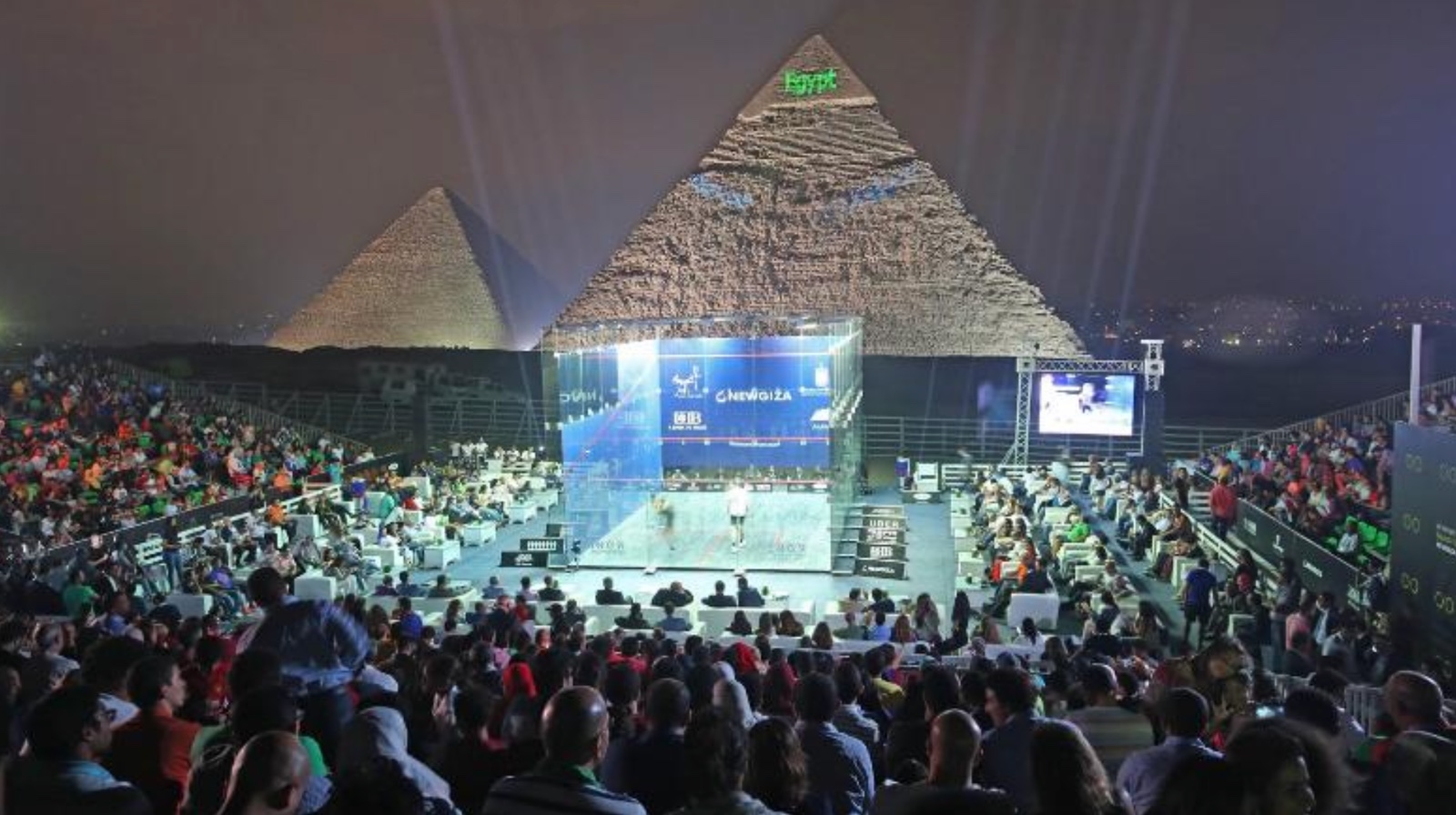The secret to Egypt’s domination over squash

Egypt ❤️ squash and squash ❤️ Egypt. Why? Egyptian players have for decades dominated the international squash circuit. Seven of the top ten players in the Professional Squash Association’s (PSA) men’s game are Egyptian nationals, as are five of the top ten women — with the top three spots all currently occupied by Egyptian women.
Case in point: Egyptian champions Ali Farag and Nour El Sherbini (both World #2s) walked away with the PSA squash championship cups earlier this month following two all-Egyptian final matches at the CIB-sponsored event.
Where it all began: The English exported their game to Egypt in the early twentieth century, building courts to entertain the colonial officers stationed in Cairo and Alexandria. Squash even gets a mention in the classic film Lawrence of Arabia (watch, runtime: 1:23), when staff brief the famed lieutenant as he arrives back at British military HQ in Cairo: “We’re doing alright, sir. We’ve built a squash court.”
It wasn’t long before we were beating the British at their own game: Egyptian diplomat F.D Amr Bey picked up the racquet when he was sent to England in 1928. By the early 1930s, Amr Bey became the first non-English victor of the British Open, the equivalent at the time of the world championship. He held the title until he retired, undefeated, in 1938, making him “the first truly dominant squash player in history,” PSA says. Amr Bey passed the mantle on to one-time ball boy Mahmoud El Karim, who walked away with four British Open titles in the 1940s.
But it was in the 1990s that the seeds of our current squash success were sown: Egyptian players faded from the squash scene in the second half of the twentieth century — only to come roaring back as it drew to a close. The catalyst was one Ahmed Barada, who shot to fame when he reached the final of the inaugural Al-Ahram International tournament. The sight of a wildcard Egyptian player rocketing to the top of the game — against the backdrop of the Giza Pyramids, no less — is credited with inspiring a generation of local kids who would go on to command the international circuit. "We always had someone to look up to and follow," men’s world #3 Mohamed Elshorbaghy was cited by the BBC as saying of Barada.
So what’s the magic recipe that has propelled our players to the top? The ‘Barada effect’ spurred enthusiasm among young athletes to learn the game — but it doesn’t explain why we’ve been able to produce so many stellar players.
Advantage #1: “Concentrated quality.” Around 1.7 mn people play squash in the US across 3.5k courts. By contrast, we have just 400 courts and less than 10k players — and the pros are all based at some 10 clubs in Cairo and Alexandria, the New York Times reports. That makes for a tight-knit community where up-and-coming talent get to play against and be mentored by the very best in the game. “These young players get to see how the greats play, train, eat,” Daniel Coyle, who writes about the science of success, told the paper.
Advantage #2: Dynamic technique. Our players are pioneering a new technique that some say also makes for a more interesting game. “Egyptian squash is dynamic and unstructured, with out-of-nowhere drop shots and deceptive flicks of the wrist,” the NYT says. It’s also aggressive: "The old style of game was about the long attritional rallies, hundreds of shots, up and down the side wall, but now largely thanks to the Egyptians you're seeing a new style of squash: attacking squash," Squash Mad editor Alan Thatcher tells France24.
Advantage #3: Cachet. Few countries hold squash players in quite as high esteem as we do — and that draws young athletes to the game. Add to that the fact that squash talent can help land Egyptian high schoolers much-coveted spots at US universities, and it's not surprising that parents of athletically gifted children are keen for them to pick squash. Whereas in the US, there are any number of well-funded, high-profile sports to funnel athletic kids into, here, a greater proportion of those kids head straight for the squash court, the NYT notes.
The future of Egyptian squash? While some have sounded the alarm that our dominance could be under threat as more young players move abroad for study, the current rankings suggest otherwise. With each success, more young Egyptians are discovering the squash scene — and that positive feedback loop will be hard for any other country to break. Long live the era of the Egyptian squash champions.